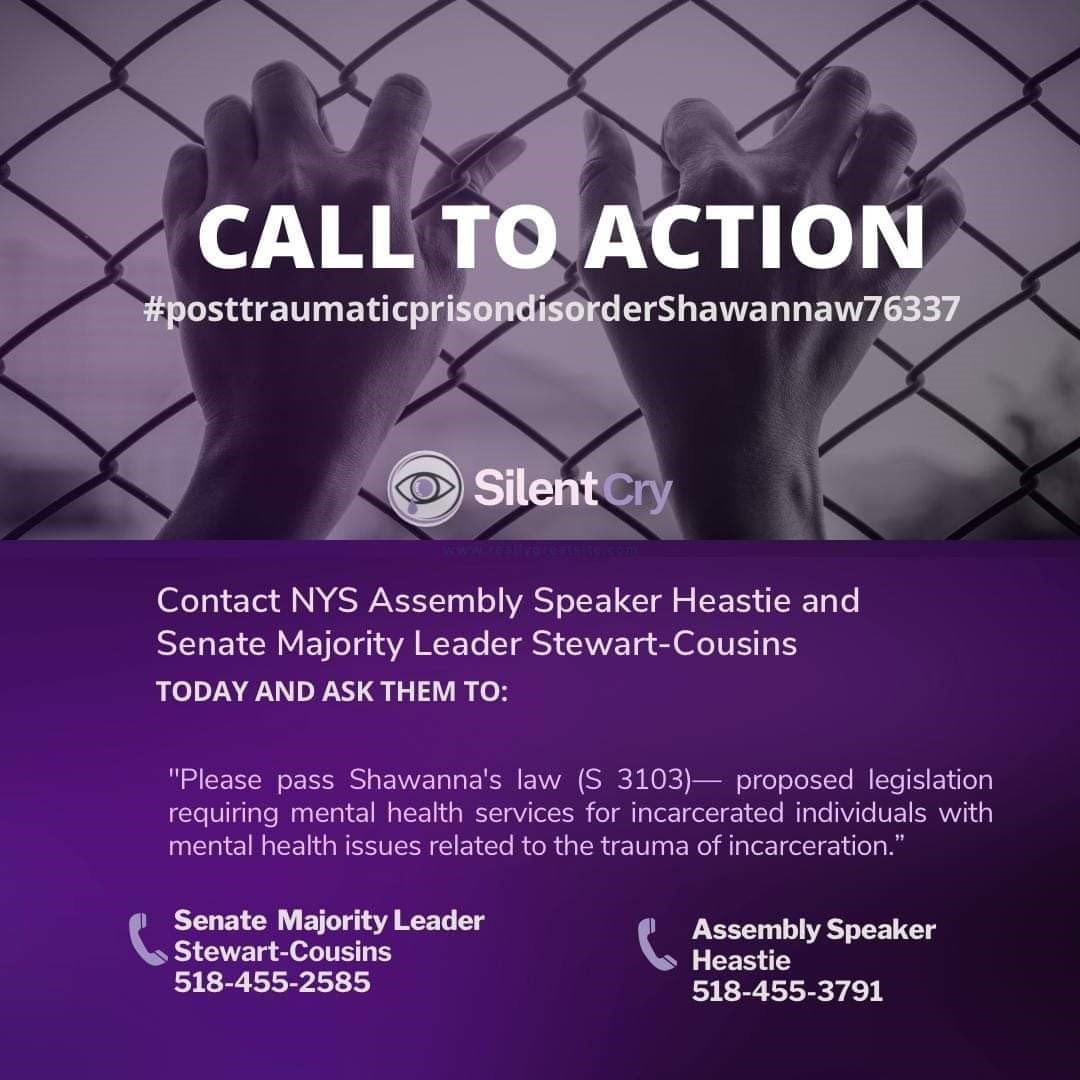NYAPRS Note: Please take immediate action and call NYS Legislative Leaders to passage Shawanna’s Law before the State Legislature adjourns this coming Thursday June 8!
Shawanna’s Law was just moved out of committee and should be brought to the floor for a vote now! The bill is sponsored by NYS State Senator Jabari Brisport and Assembly Member Michaelle Solages, who serves as the chair of The New York State Black, Puerto Rican, Hispanic and Asian Legislative Caucus.
The legislation would require New York State to provide appropriate services for formerly incarcerated people experiencing mental health issues resulting from their detention. The bill is named for Shawanna Vaugh, founder of Silent Cry, a group that advocates for post-incarceration mental health services. She has quickly become a nationally recognized advocate on mental health services for the trauma incarceration can cause, based on her own experiences in the criminal justice system.
According to the bill, “mental health reentry services shall be included in an incarcerated individual’s transitional accountability plan. Such mental health reentry services shall begin the first week upon admission of an incarcerated individual to a correctional facility and such services shall be provided by licensed therapists, psychiatrists, psychologists, social workers, or nurses.. who specialize in trauma and utilize culturally sensitive techniques. Mental health reentry services shall include, but not be limited to: (i) behavioral health screening and assessment; (ii) clinical intervention for any mental health issues related to the trauma of incarceration; (iii) mental health and trauma screenings within sixty days of being committed to the custody of the department.
Born In Prison, How One Woman Used Her Trauma To Write The Post Traumatic Prison Disorder Act (excerpts)
By Amanda Nguyen Forbes Magazine May 13, 2021
After she was born to an incarcerated mother and faced an unstable childhood, Shawanna Vaughn found herself back behind bars by the age of 17.
“Walking into prison at 17 was the most traumatic experience of my life,” she remembers. She shared a cell with convicted murderers, mothers and young women.
Incarceration can lead to serious mental health traumas which can derail successful re-entry and rehabilitation. “As a person who suffers from the remnants of mass incarceration, I am very clear that the trauma starts before prison and lingers forever until there is help,” Vaughn asserts. She believes a holistic healing approach is needed.
…Statistics show that 61% of adults had at least one adverse childhood experience (ACE), or potentially traumatizing events that occur in childhood such as violence, abuse, and exposure to mental health or substance use problems. ACEs have been linked to chronic health problems, mental illness, juvenile and adult incarnation and substance misuse later in life.
“Everyone deserves to be mentally well no matter where you are,” Vaughn says. She believes mental health has no boundaries, borders, economic standing, or color. “It’s a feeling. It’s depression. It’s anxiety. It’s insomnia. It’s self-harm. It’s loneliness, isolation, low self-esteem, devaluing life. Everyone deserves the pursuit of wholeness.”
Vaughn is determined to pass the bill in New York and in states across the country. She believes the legislation can immediately help the 2.2 million people who are currently incarcerated and the 4.5 million additional people currently under parole and probation—the equivalent of 1 in 55 adults.
Beyond legislative aims, Vaughn wants to create opportunities for individuals who are transitioning out of prisons. She envisions creating facilities with multi-faceted forms of treatment and youth outreach.
Vaughn’s advice to other activists is not to give up and to remain true to your vision. “You are not fighting for yourself, you are fighting for humanity.”
Go to www.silentcryinc.org to learn more about Silent Cry.
